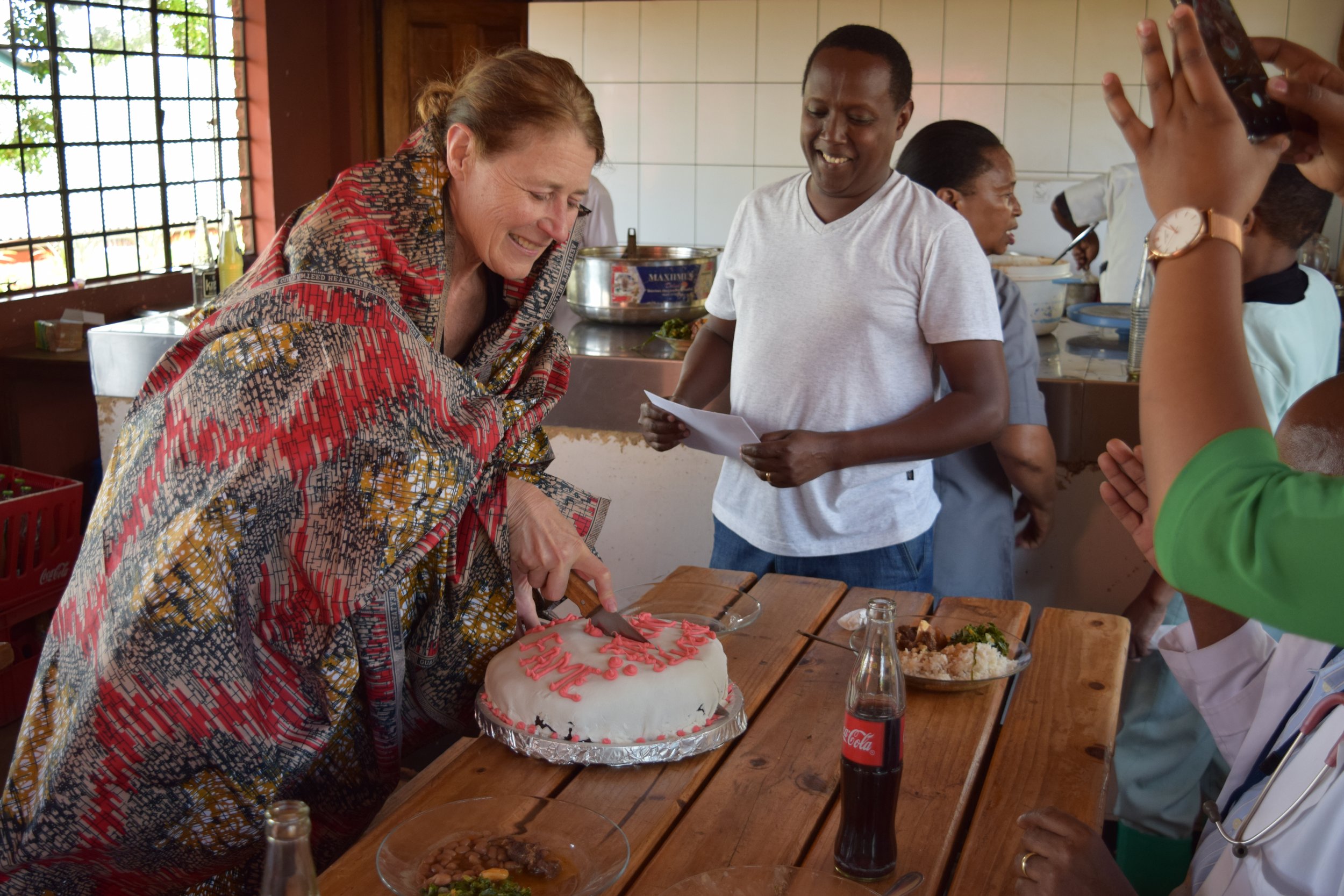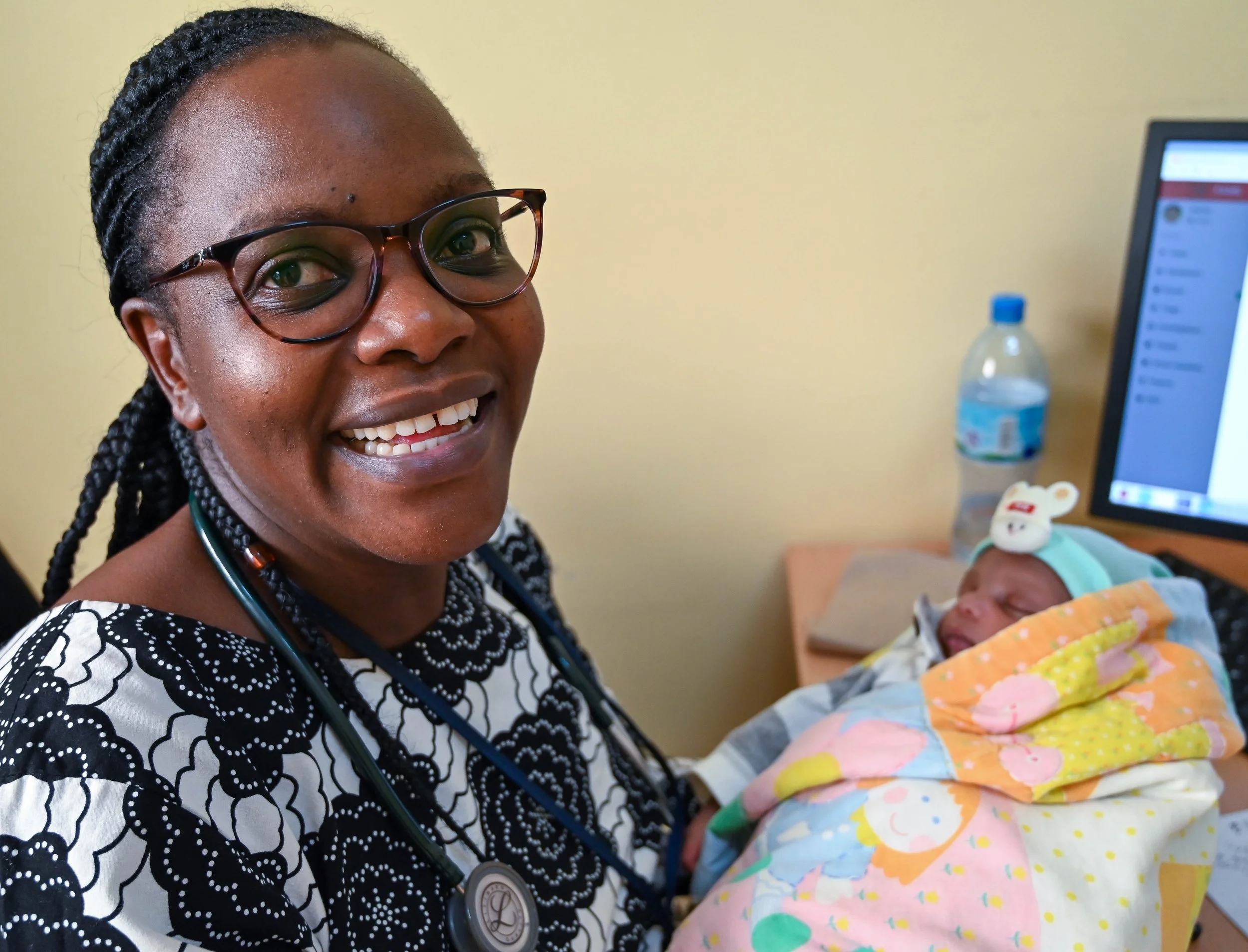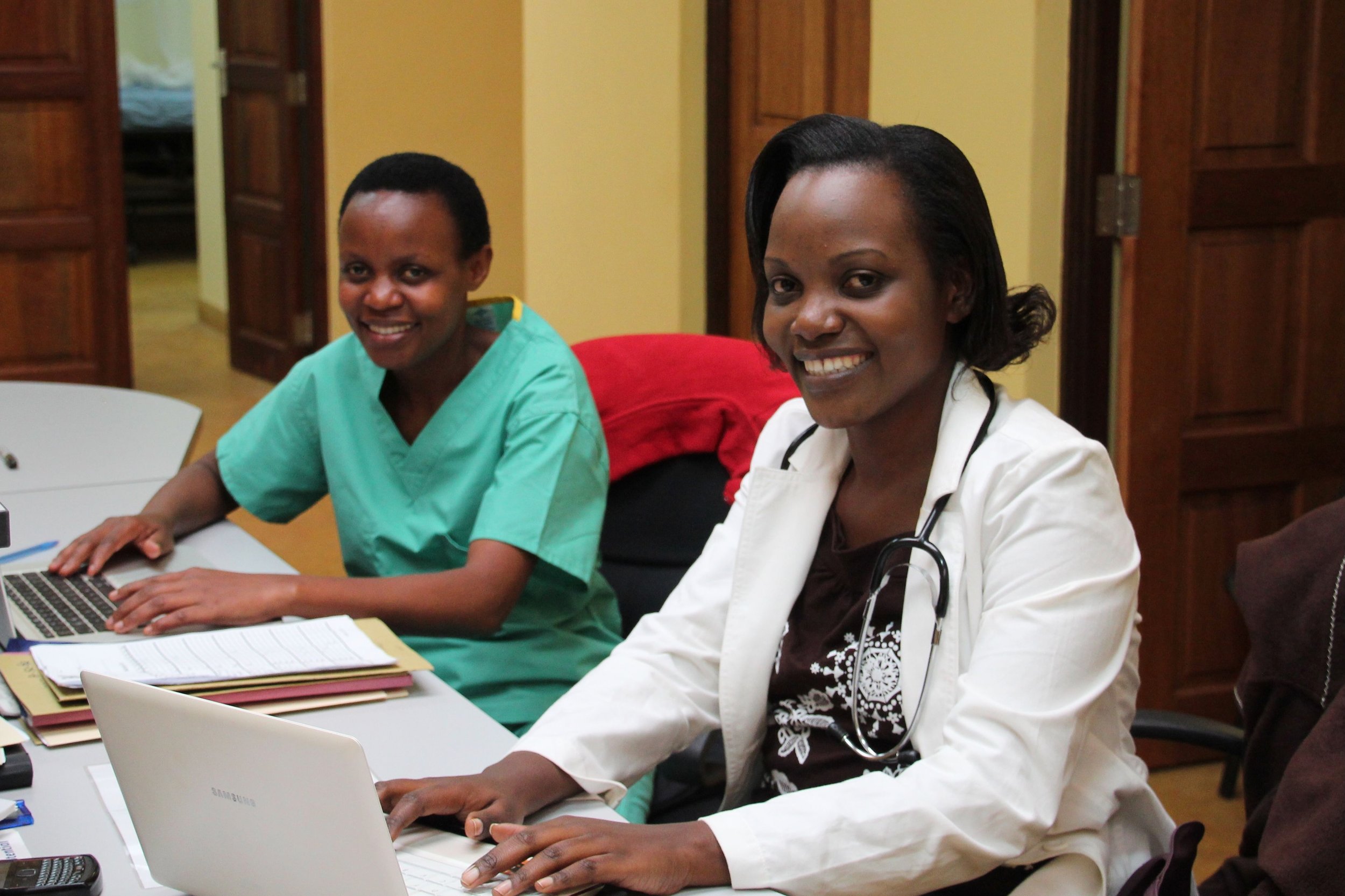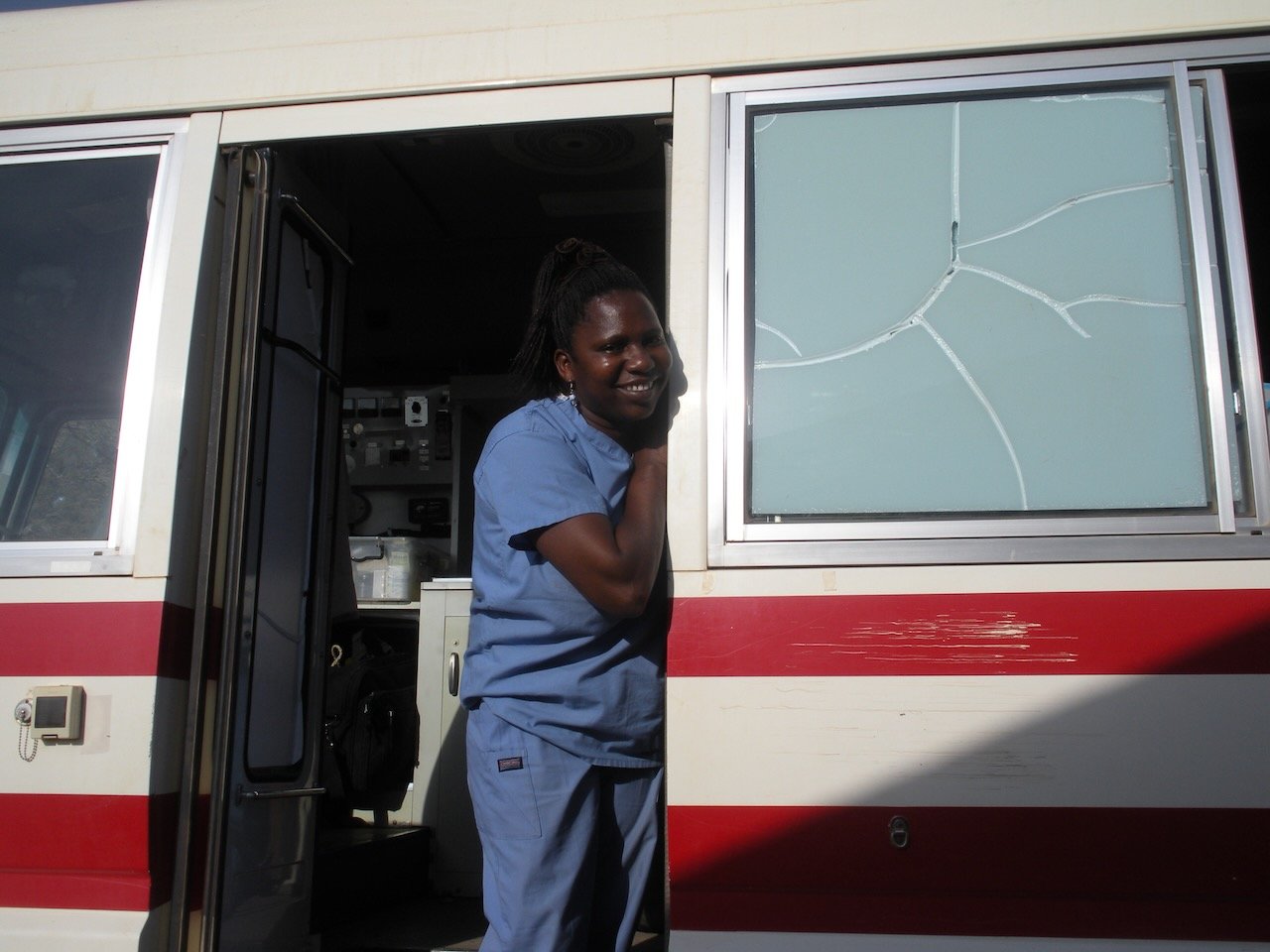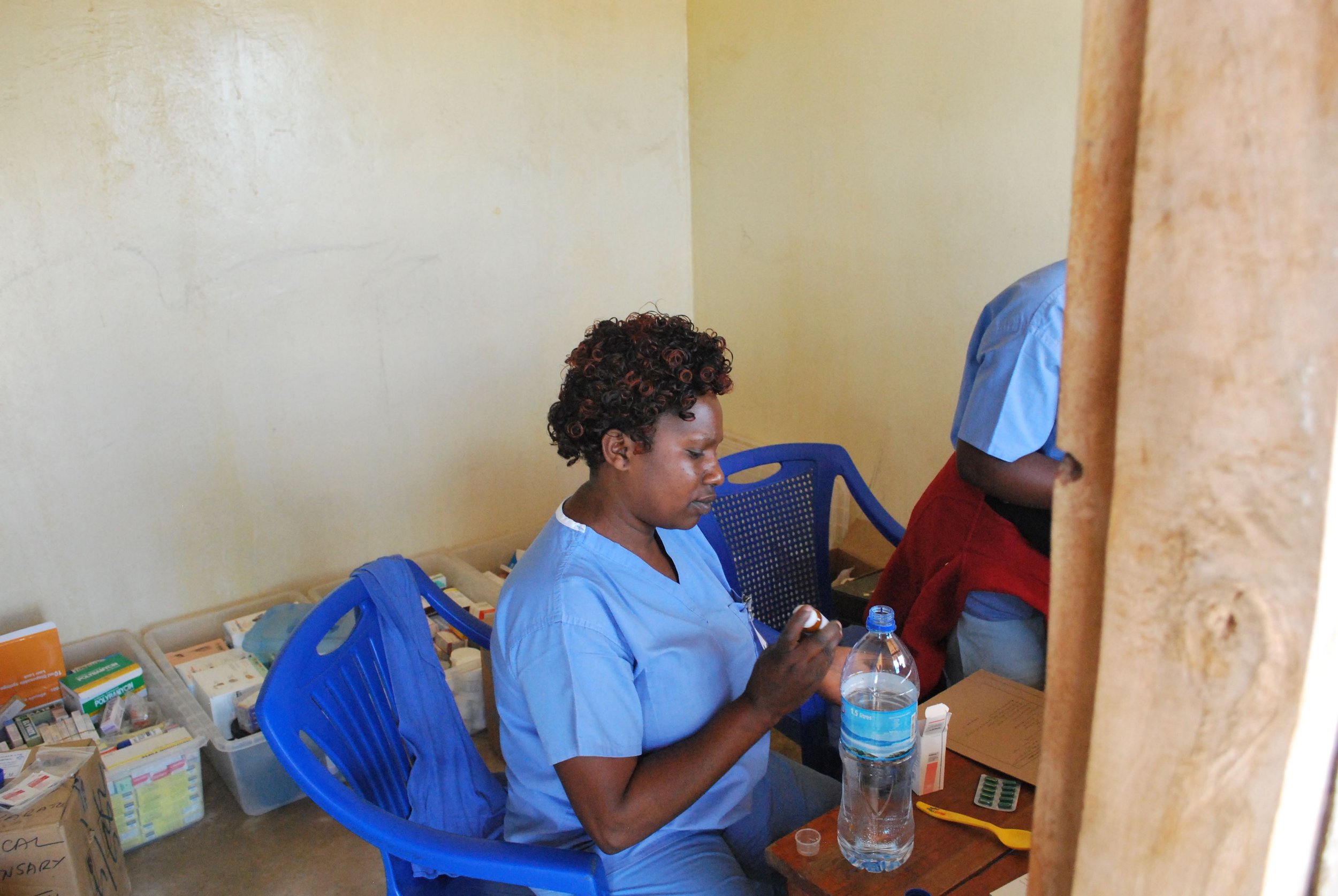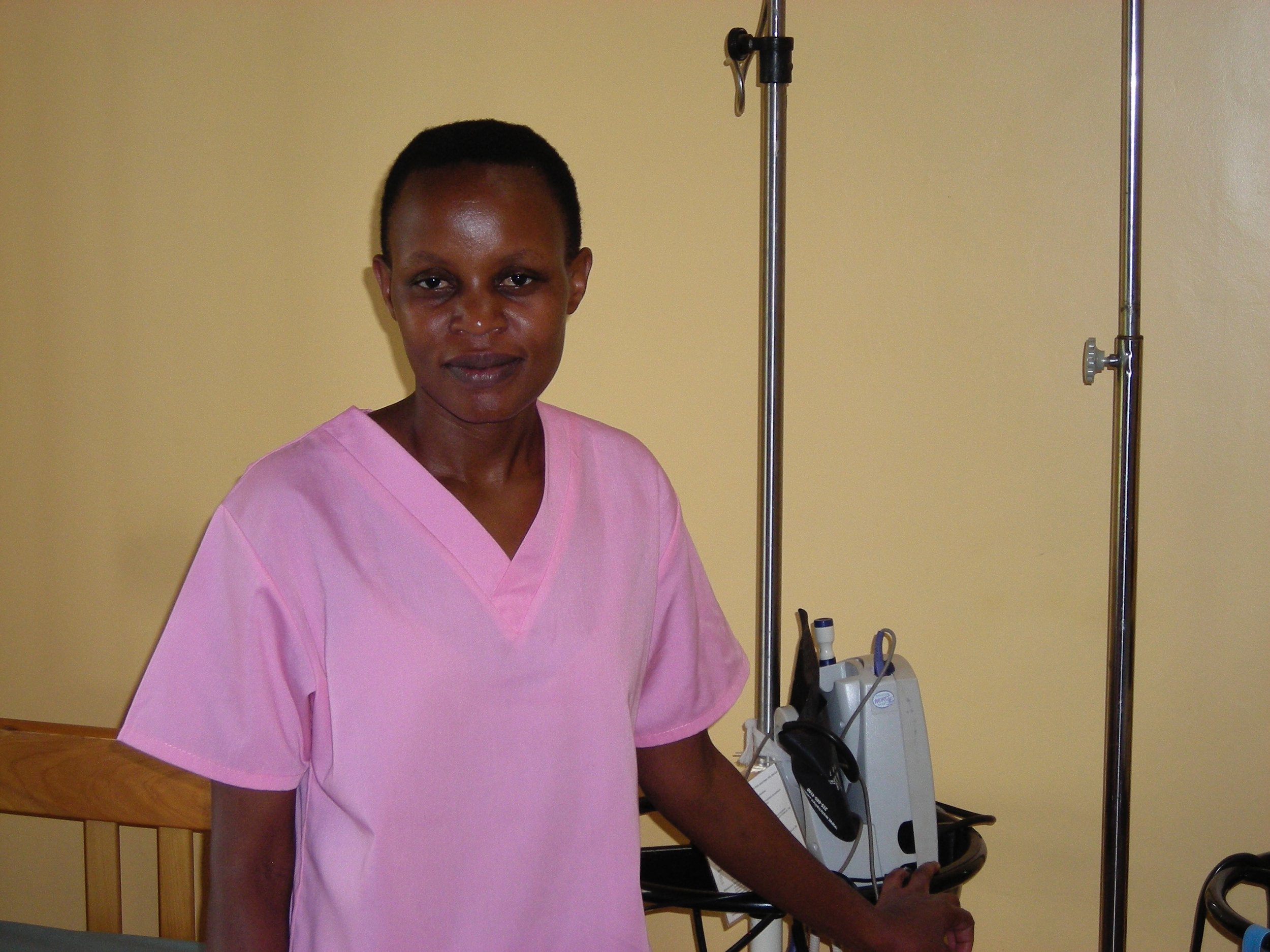From Left: Nurse Ruhama Lyanga, Diane Berthel and Nurse Safiniel Shedrack Mbwambo.
FAME, February 2019.
Diane’s going away party.
FAME, November 2019
FAME staff after a training session with Diane.
FAME, January 2018
Sue [FAME’s Digital Media Manager] asked me to do a volunteer reflection. But I think she is asking, “Why are you here and not sipping drinks on a beach somewhere?” Good question!
I have been retired for ten years and believe that “purpose fuels passion” (the theme of my blog) and passion is the fountain of youth. In short, the people and mission of FAME keep me young! Add to that the opportunity to truly EXPERIENCE Tanzania's natural beauty and cultural richness and I’m in!
I’m not a medical volunteer, so what is it that I do? I’m a management coach, a strategist, whatever is needed volunteer. I mostly look, feel, listen and then respond: What do I notice? What is shared? How can I help adjust the direction to maximize resources at FAME? To do this, the staff must trust me. I come every year for three months for the consistency that drives trust.
Dr. Julius said it eloquently when I arrived this year. He said, “Before you came, I thought administration-insignificant. Now I see we are all heading in the same direction. It is good!”
Dr. J’s comment was encouraging because I meet with every department here. I call them “look-up” sessions. No matter what specific work we are doing, we see the mission and vision when we look up: Patient-centered care, an environment that encourages lifelong learning, and resources to do our work! And we each play a role in healing patients.
“Everyone here is a healer. In this morning’s meeting, I reminded housekeeping about their role in healing. I start with my standing joke that the toilets at FAME are so clean I could eat my lunch there. Then I asked them to imagine how good it feels to lie on clean sheets with
newly washed floors when sick. When patients feel good, they can begin recovering.”
For groundskeepers, I tell them to imagine how a frightened patient feels sitting in a beautiful garden while waiting for a doctor. So much about this healing environment is a model for healthcare everywhere. Kind receptionists, prescriptions that can be filled, accurate and quick lab tests, a safe and tranquil campus, good food and drinking water, and many more reasons for patients to relax into the patient-centered care that FAME promises and provides.
Another elixir for me is the commitment to learn and improve, with “patient care” always at the heart of it. As an addicted learner, I am thrilled when I hear things like “since your meetings last year, everyone knows that we start on time” or when talking the “FAME DNA” of lifelong learning comes up.
After an orientation with new employees, it is amazing when they share how excited they are to be here.
“Management and supervisors are so responsive because they genuinely want the best for their patients and teams. Frank, Susan and William gently bring me back to earth when my ideas go too far!”
So why wouldn’t I just move in permanently? Tempting, but I do need an occasional drink on a
beach or in my backyard in Minnesota!


